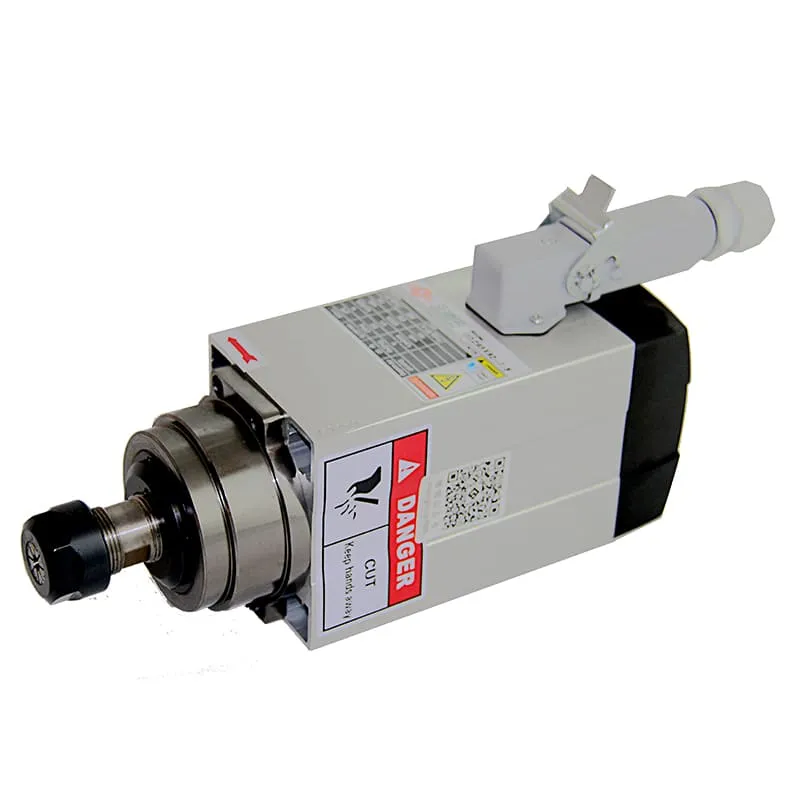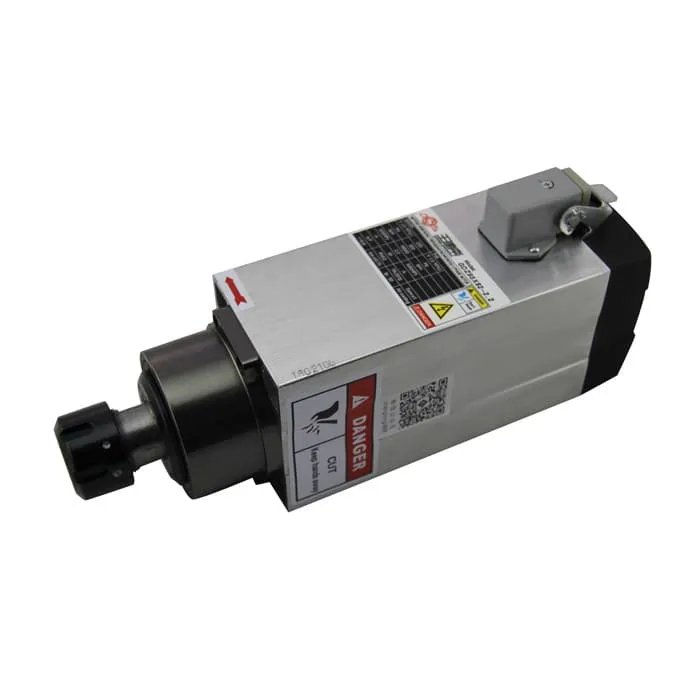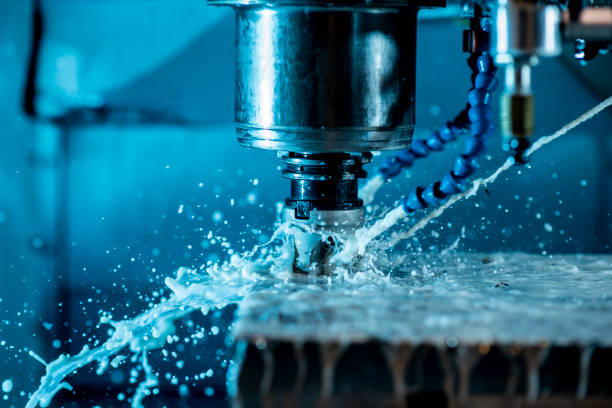What Is a CNC Specialist?
In the ever-evolving world of manufacturing, technology has transformed how we create parts and products, making it more efficient and precise. One of the critical components driving this transformation is CNC technology, which stands for Computer Numerical Control. But behind every successful CNC operation is a CNC Specialist—an expert who ensures the machines work seamlessly to produce the desired results. This article delves into what it means to be a CNC specialist, their role in the manufacturing industry, and the skills required to excel in this field.
Understanding the Role of a CNC Specialist
A CNC Specialist is a professional who works with CNC machines—sophisticated tools that are capable of shaping, cutting, drilling, and milling various materials with computer precision. These machines are at the core of modern manufacturing and machining industries, which produce everything from intricate mechanical parts to large industrial products.
The primary job of a CNC specialist is to operate, program, and maintain these machines. This involves understanding the technical intricacies of CNC machines, configuring them to meet specific job requirements, and ensuring that they perform efficiently. The work of a CNC specialist often focuses on CNC mills, lathes, and other CNC equipment used to manufacture different components.
Key Responsibilities of a CNC Specialist
A CNC specialist must wear several hats to ensure smooth operations. Below are some of their most important responsibilities:
- Programming CNC Machines: Writing or adjusting G-code, which instructs the CNC machine on how to perform tasks like cutting, drilling, or milling. G-code is essentially the language that allows the machine to understand what shape it needs to produce.
- Operating CNC Equipment: Ensuring that CNC machinery is running as expected, handling the setup of machines, loading tools, and selecting materials for production.
- Maintenance and Troubleshooting: Maintaining CNC machines is crucial. A CNC specialist is responsible for keeping machines calibrated, resolving technical issues, and ensuring that all equipment is in good working order.
- Quality Control: Verifying that the products meet quality standards. This requires careful measurement, inspection, and adjustments during the machining process to ensure dimensional accuracy.
For further insights into the types of spindles used in CNC machines, explore our collection of CNC Spindles.
Skills Required for a CNC Specialist
To be effective, a CNC specialist needs a combination of technical know-how, problem-solving skills, and an understanding of manufacturing processes. Below are some critical skills that a successful CNC specialist must have:
1. Technical Aptitude
A CNC specialist must have strong technical skills, particularly when it comes to reading blueprints and understanding CAD (Computer-Aided Design) drawings. This is crucial because the CNC machines follow detailed specifications from CAD files to cut or mill components.
2. Programming Skills
Programming is a big part of what makes CNC specialists valuable. They should be comfortable writing, editing, and debugging G-code to achieve optimal machine performance. This is where CNC specialists distinguish themselves from other machinists—they bring computer programming skills into the world of manufacturing.
3. Attention to Detail
CNC machines operate with high precision, but mistakes in programming or setup can lead to defective products. A CNC specialist must have a meticulous approach to avoid errors, check the machine’s calibration, and perform regular quality checks to maintain accuracy.

For example, a CNC specialist working with a 1.5KW ER20 Square Air-Cooled Spindle will need to adjust settings to suit the material and desired output quality.
4. Mechanical Knowledge
A good CNC specialist understands the tools they are working with. This means being knowledgeable about cutting tools, speeds, feeds, and materials. The specialist should be able to select the correct cutting tool for each job, set appropriate speeds and feeds, and determine the correct depth of cut.
5. Problem-Solving Skills
Unexpected problems can occur with CNC machines, from tool breakages to programming errors. A CNC specialist needs to have solid problem-solving skills to address and troubleshoot these issues efficiently. They must be capable of diagnosing machine issues, adjusting programs, or replacing tools without delaying the production line.
CNC Specialist vs. CNC Operator: What’s the Difference?
Often, people confuse CNC specialists with CNC operators. While their roles might overlap, there are crucial distinctions between them.
- CNC Operator: A CNC operator generally works at an entry-level capacity. Their primary tasks include loading materials, monitoring machines, and conducting basic maintenance. They may also adjust minor settings to keep the production going smoothly.
- CNC Specialist: On the other hand, CNC specialists have more advanced skills. They take responsibility for programming the machines, conducting major maintenance, and optimizing machining processes for efficiency and quality. Their job often involves overseeing multiple machines and solving complex technical issues.
Explore our range of CNC spindle motors to find products that can help make CNC operations smoother and more efficient.
Training and Certifications for CNC Specialists
1. Vocational and Technical Training
Most CNC specialists have some form of vocational or technical education. This could be a diploma or certificate in CNC Machining, Manufacturing Technology, or Mechanical Engineering. Training typically involves learning about machine setup, CAD software, G-code programming, and material properties.
2. On-the-Job Training
Many CNC specialists acquire their skills through on-the-job experience. Entry-level positions, such as CNC operator roles, offer the opportunity to work alongside experienced specialists, gaining practical knowledge and exposure to various machining processes.
3. Certifications
There are several certifications available that can validate a CNC specialist’s expertise. Certification programs from organizations such as the National Institute for Metalworking Skills (NIMS) offer courses that cover CNC programming, inspection, and other essential skills.
Certification not only helps CNC specialists learn but also gives them credibility within the industry. It reassures employers of their competency in handling different CNC machining tasks.
The Importance of CNC Specialists in Manufacturing
CNC specialists are the backbone of precision manufacturing. They bring together computer technology and manual expertise to create parts that are accurate, consistent, and meet industry standards.
1. Maximizing Efficiency
CNC specialists help manufacturing plants maintain a high level of efficiency. By optimizing the machine setup, programming precise tool paths, and adjusting settings, they ensure that waste is minimized and production times are kept short.
2. Ensuring Quality Control
Quality is everything in manufacturing. CNC specialists are responsible for ensuring that each product meets precise specifications. They must adjust settings and inspect finished parts to ensure compliance with engineering drawings and quality standards.

For quality spindle motors that can help you maintain the precision needed in CNC work, consider our 2.2KW ER25 Square Air-Cooled Spindle.
3. Reducing Downtime
Downtime can be costly in manufacturing. CNC specialists minimize downtime by conducting regular maintenance on machines, troubleshooting issues, and ensuring that tools and parts are always in good condition. Their expertise in diagnosing and fixing problems promptly means that production rarely needs to stop.
Career Opportunities and Growth for CNC Specialists
The manufacturing industry has seen steady growth in the demand for CNC specialists, owing to the increasing reliance on automation and computerized manufacturing processes. Below are some career opportunities and growth paths for CNC specialists:
1. CNC Machinist
A CNC specialist often starts their career as a CNC machinist, handling machine operation and making adjustments as required. Over time, with more experience, a CNC machinist can become a full-fledged CNC specialist, gaining responsibilities like programming and machine optimization.
2. CNC Programmer
With experience in writing G-code and managing CNC operations, CNC specialists can transition to more advanced roles, such as CNC Programmers. CNC programmers work extensively with CAD/CAM software to create machine instructions from engineering drawings.
3. Manufacturing Supervisor
Many CNC specialists eventually move into supervisory roles, managing production lines and overseeing the work of other operators and machinists. Their experience in optimizing machine operations and quality control makes them well-suited for such leadership positions.
Conclusion: The Value of CNC Specialists
A CNC Specialist is a highly skilled professional who plays a crucial role in the manufacturing industry. With a deep understanding of both machining processes and computer programming, CNC specialists ensure that production runs smoothly, accurately, and efficiently. They are indispensable in helping manufacturers keep up with high-quality standards and meet the ever-growing demands of various industries.
Whether you are a company looking to streamline your CNC operations or someone interested in pursuing a career in CNC machining, understanding the role of a CNC specialist is key to harnessing the full potential of modern manufacturing technologies. If you’re interested in enhancing your CNC setup, explore our range of CNC spindle motors and other essential components.
FAQs
1. What does a CNC specialist do?
A CNC specialist is responsible for programming, operating, and maintaining CNC machines to ensure efficient production of parts. They handle everything from writing G-code to quality control and machine maintenance.
2. What skills are required to be a CNC specialist?
Key skills for a CNC specialist include technical knowledge of CNC operations, G-code programming, CAD/CAM familiarity, attention to detail, and problem-solving skills.
3. What’s the difference between a CNC operator and a CNC specialist?
A CNC operator handles machine setup, loading materials, and monitoring, while a CNC specialist takes on more advanced tasks, such as programming the machines, troubleshooting issues, and optimizing the production process.
4. How can I become a CNC specialist?
Becoming a CNC specialist often involves gaining vocational training in machining or manufacturing technology, gaining experience as a CNC operator, and pursuing certifications from recognized organizations.
5. Why are CNC specialists important in manufacturing?
CNC specialists ensure that CNC machines are operating efficiently, maintain quality standards, and help minimize downtime, which is crucial for keeping manufacturing costs low and productivity high.

